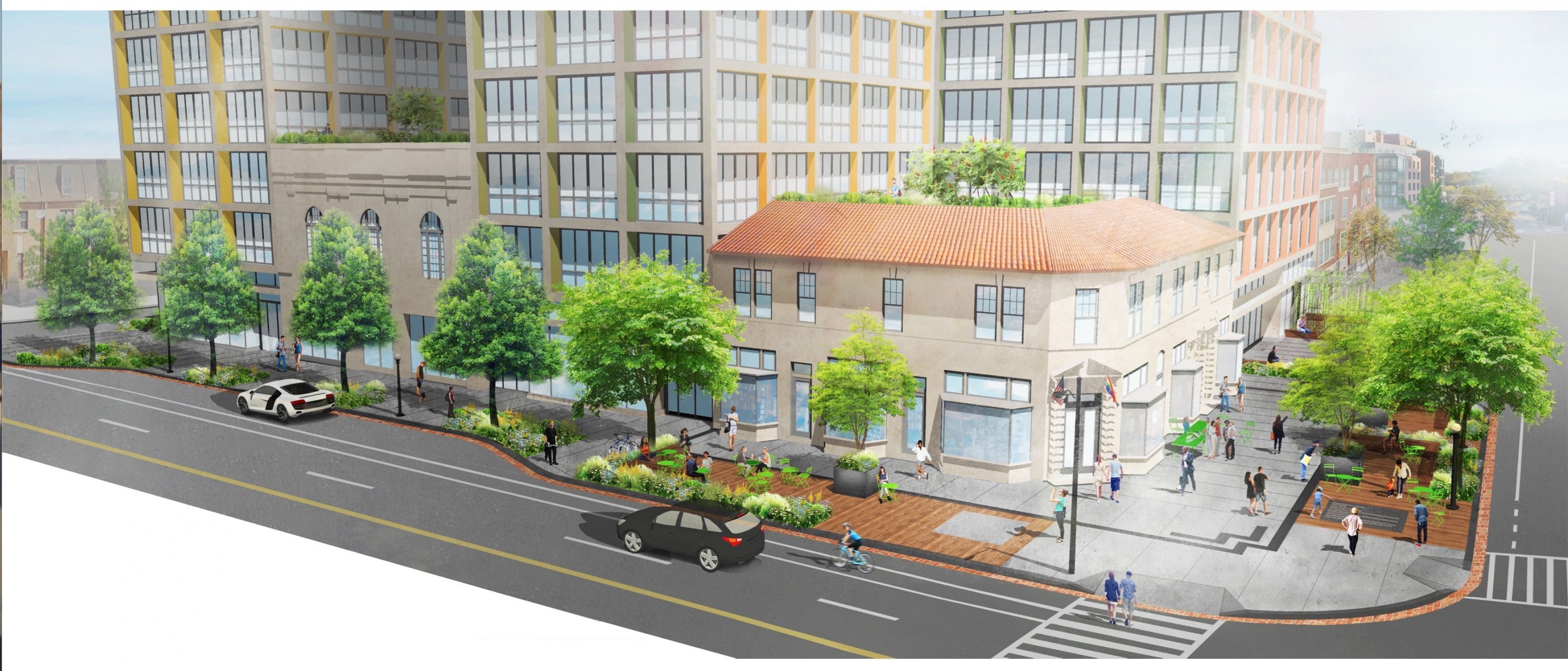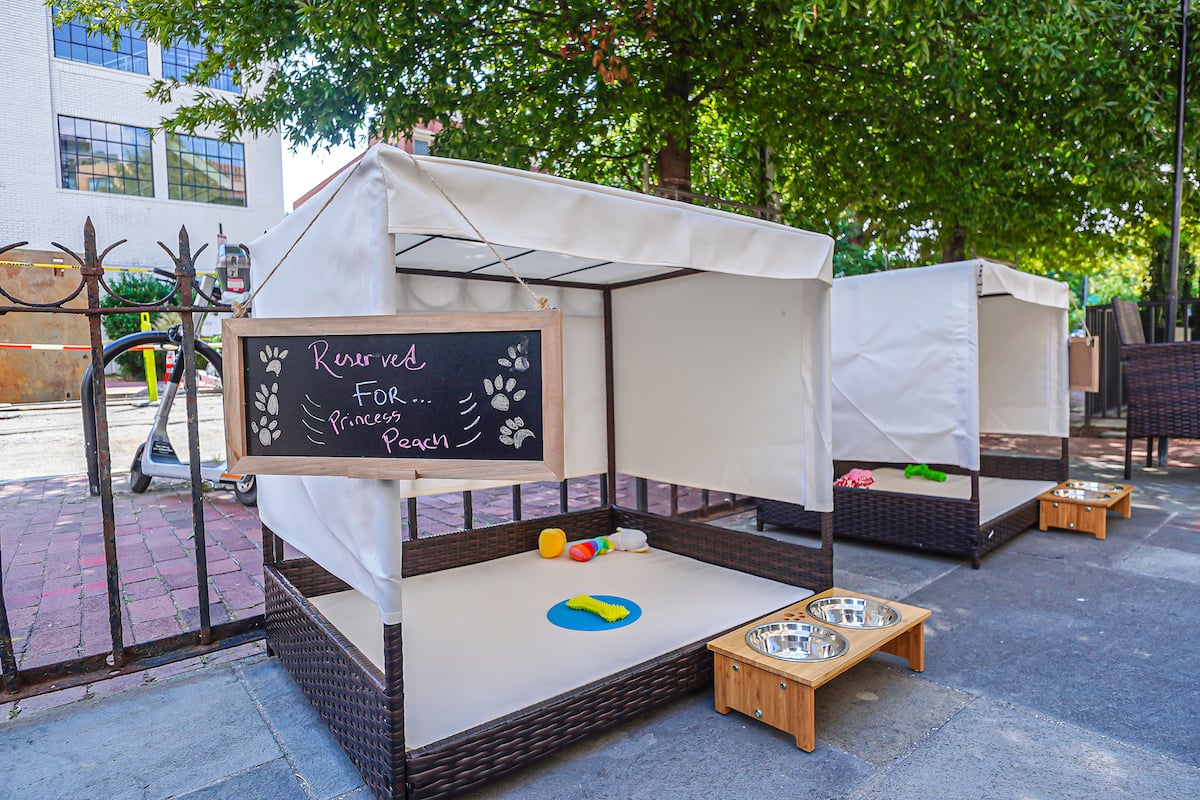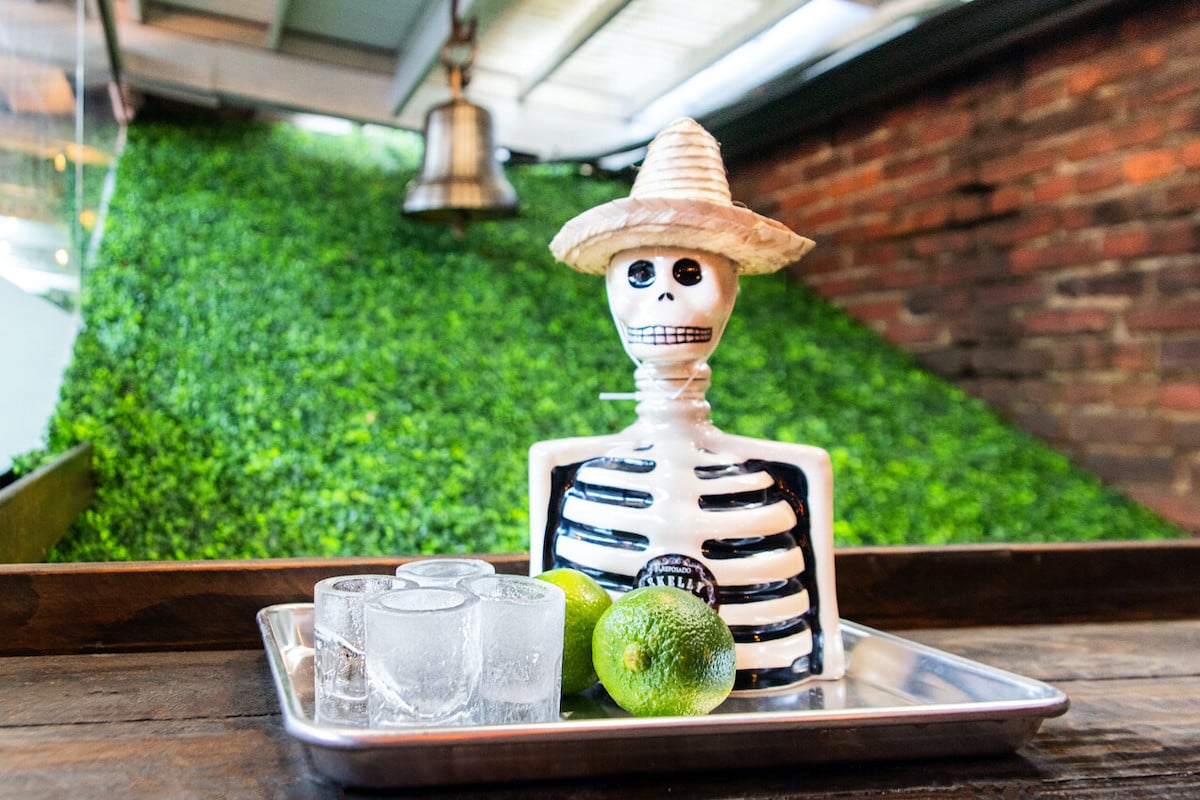Whitman-Walker’s old Elizabeth Taylor Medical Center at 14th and R streets, Northwest, was not meant to be noticed. During the AIDS epidemic, it was where dying gay men could safely—and privately—seek health care and support. But while that building was intended as a refuge from the outside world, the one now rising in its place is designed to announce itself to it.
“There’s no way when you walk by that corner that you’re not going to feel there’s something different and exciting there,” says former DC planning director Andy Altman, now managing principal of Fivesquares Development. Altman’s company partnered with Whitman-Walker Health to build the project, called Liz, which has several components. Chief among them: a first-floor cultural center that will be open and free to the public, as well as park-like, public outdoor space.
“There’s nowhere on 14th Street where you can sit, unless you want to buy a glass of Chardonnay,” says Altman. He says he wants Liz to become a place where people come “to just sit in a very beautifully landscaped space.”
Altman enlisted Brooklyn landscape architecture firm Future Green to design the outdoor areas, which will include built-in bench seating, artwork, plantings, and boardwalk-inspired wooden planks instead of a typical all-concrete sidewalk.

Indoors, the cultural center will feature art exhibits, poetry readings, panel discussions, artist talks, and other programming meant to celebrate and explore “intersectionality, which is, in effect, how people want the world to see them,” says Whitman-Walker’s CEO, Don Blanchon. “What does it mean to be gender-nonbinary? What does it mean to be a trans woman of color? . . . It will be a place for people to come in and have conversations about who they are, what they believe in, who they love, and not feel judged.”
The cultural center is scheduled to open in early October 2019. Blanchon is currently searching for an artistic director to lead it. Given the site’s emotional history, the property, he says, is “sacred ground for us. We wanted to be able to do something special.” He explains that opening an arts-focused public space nods to 14th Street’s history as a cultural hub, with institutions such as Studio Theatre and the Black Cat having arrived long ahead of the recent influx of trendy restaurants, bars, and shops.
Blanchon considers the timing of the center’s slated arrival particularly fortuitous. “History has taught us that expression during difficult times in society is what gets people through,” he says. “We live in a day and age right now where people in power want to minimize, marginalize, if not completely dismiss [the people we serve]. The idea of this space is for people to actually express some of that, to have that voice.”
Liz, however, will contain much more than just the cultural center. The development, designed by Selldorf Architects, will also house Whitman-Walker’s new headquarters on its second floor. A third-level of office space was recently leased by the Goethe-Institut, an organization focused on promoting German culture abroad. The building’s top four floors will be apartments. Aside from the cultural center, the ground floor has almost 20,000 square feet of retail. Sephora has taken some of that space, and Altman says he expects to announce a restaurant soon, too.
Because his company and Whitman-Walker are co-owners of Liz, the revenue generated by the apartments and retail leases will provide a new income stream to support Whitman-Walker’s programs, as well as its plan to expand east of the Anacostia River. “There’s always more need than what we’re funded for,” says Blanchon. “The larger we get, the greater the need.”



















